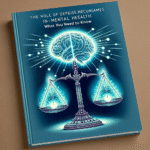
Introduction
In our fast-paced world, stress has become a commonplace companion for many. From deadlines at work to personal obligations, the weight of relentless demands can feel overwhelming. However, stress isn’t just an inconvenience; it poses serious risks to our physical and mental health. Studies show that chronic stress can lead to serious issues including anxiety, depression, and cardiovascular diseases. In this comprehensive guide, we will explore 10 Proven Strategies to Conquer Stress and Boost Your Well-Being. These strategies will not only help you manage stress effectively but will also enhance your overall quality of life.
1. Embrace Mindfulness Meditation
Understanding Mindfulness
Mindfulness involves being present in the moment, fully engaging with your thoughts and feelings without judgment. It’s an excellent tool for reducing stress and promoting emotional regulation.
Case Study: The Impact of Mindfulness in the Workplace
A tech company implemented a mindfulness program for its employees. Within three months, they noted a 30% reduction in reported stress levels. Employees cited improved focus, greater job satisfaction, and enhanced teamwork.
How to Get Started
- Daily Practice: Start with just 5-10 minutes a day.
- Guided Sessions: Use apps like Headspace or Calm for structured guidance.
2. Prioritize Physical Activity
The Stress-Relief Benefits of Exercise
Regular physical activity increases the production of endorphins, the body’s natural mood lifters. Exercise can also help improve sleep, reduce anxiety, and build resilience against stress.
Case Study: The Running Program
A community established a running club, effectively reducing participants’ stress levels by 40% within six months. Participants reported not only lower stress but also a stronger sense of community.
Getting Active
- Choose Activities You Enjoy: This could be dancing, walking, or high-intensity workouts.
- Set Realistic Goals: Aim for at least 150 minutes of moderate aerobic activity each week.
3. Cultivate Social Connections
The Importance of Relationships
Having a support system can significantly reduce stress levels. Engaging with friends, family, or support groups fosters a sense of belonging and shared experience.
Case Study: Loneliness vs. Connection
A psychological study highlighted that individuals with strong social ties experienced lower levels of stress. Those who actively engaged in social activities reported a 25% improvement in their overall well-being.
Building Connections
- Reach Out Regularly: Make time for friends and family.
- Join Clubs or Groups: Participate in community activities or online forums.
4. Develop Healthy Eating Habits
Nutrition’s Role in Stress Management
A balanced diet rich in fruits, vegetables, healthy fats, and whole grains can positively impact your physical health and mental resilience to stress.
Case Study: The Mediterranean Diet
Research shows that individuals following a Mediterranean diet, which is high in omega-3 fatty acids and antioxidants, demonstrated lower levels of anxiety and depression.
Eating for Well-Being
- Plan Your Meals: Incorporate nutrient-dense foods into your daily diet.
- Stay Hydrated: Drink plenty of water and limit caffeine and sugar.
5. Practice Deep Breathing Techniques
The Science of Breathing
Deep breathing exercises stimulate the body’s relaxation response, counteracting stress’s physiological effects. Deep, abdominal breaths activate the body’s calming system.
Case Study: Yoga and Breathing
A study involving yoga participants found that those who incorporated deep breathing had significantly reduced stress markers after just eight weeks.
Breathing Exercises to Try
- 4-7-8 Technique: Inhale for 4 seconds, hold for 7, and exhale for 8.
- Diaphragmatic Breathing: Focus on expanding your diaphragm rather than your chest.
6. Implement Time Management Techniques
Managing Your Time Effectively
Often, stress arises from feeling overwhelmed by responsibilities. Efficient time management can alleviate this burden, making tasks feel more achievable.
Case Study: The Pomodoro Technique
A group of professionals used the Pomodoro Technique, working in intervals of 25 minutes followed by a 5-minute break. They reported increased productivity and a 20% reduction in stress levels.
Tips for Better Time Management
- Prioritize Tasks: Use lists to categorize tasks by urgency and importance.
- Set Boundaries: Learn to say no to excessive commitments.
7. Get Adequate Sleep
Sleep’s Effect on Stress
Quality sleep is crucial for mental health and resilience against stress. A well-rested brain is more capable of handling daily challenges effectively.
Case Study: Sleep Hygiene
An organization introduced sleep hygiene workshops to employees. After three months, participants noted improved sleep quality and a 30% drop in reported stress.
Tips for Better Sleep
- Create a Sleep Schedule: Aim for 7-9 hours of sleep per night.
- Create a Restful Environment: Reduce noise and light to promote better sleep.
8. Engage in Creative Activities
The Role of Creativity in Stress Relief
Engaging in creative hobbies like painting, writing, or playing music can serve as a therapeutic outlet for stress, promoting relaxation and self-expression.
Case Study: The Art Therapy Group
A local art therapy group found that participants reported a 50% reduction in stress after engaging in creative activities, fostering a sense of accomplishment and emotional release.
Finding Your Creative Outlet
- Experiment: Try different creative activities to find what resonances most with you.
- Dedicate Time: Set aside a regular time each week for creative exploration.
9. Limit Digital Distractions
The Digital Detox Concept
Continuous exposure to digital devices can increase stress and anxiety. Taking breaks from screens can enhance mental clarity and emotional well-being.
Case Study: The Screen-Free Weekend
One community initiated a screen-free weekend. Participants reported a drastic reduction in stress, with more meaningful interactions and increased relaxation.
Strategies to Limit Digital Time
- Set Boundaries: Allocate specific times for checking devices.
- Engage with Nature: Spend time outdoors to reconnect with the world without digital interference.
10. Seek Professional Help When Needed
Understanding the Value of Professional Support
Sometimes, stress can be overwhelming. Seeking help from a mental health professional can provide crucial support and effective coping strategies.
Case Study: Therapy Benefits
Patients who engaged in regular therapy sessions reported decreased anxiety and improved coping skills, showing a clear correlation between professional help and reduced stress levels.
Finding Support
- Identify Your Needs: Consider what specifically is contributing to your stress when seeking help.
- Research Providers: Look for therapists who specialize in stress management.
Conclusion
Implementing 10 Proven Strategies to Conquer Stress and Boost Your Well-Being can substantially enhance your daily life. By embracing mindfulness, prioritizing physical activity, fostering social connections, and seeking professional help when necessary, you empower yourself to face life’s challenges with resilience.
Take the first step today; choose one strategy and incorporate it into your life. Remember, managing stress is not just about surviving; it’s about thriving. Embrace these changes and watch as your well-being transforms over time.
FAQs
1. What are some immediate ways to reduce stress?
Engaging in deep breathing, taking a short walk, or practicing mindfulness for a few minutes can offer quick relief.
2. How can I maintain these strategies long-term?
Consistency is key. Set realistic goals and integrate these strategies gradually into your daily routine.
3. Can stress be beneficial at times?
Yes, a moderate amount of stress can motivate you to perform better and meet deadlines. It’s chronic stress that poses severe risks.
4. What if I don’t have time for self-care?
Prioritize self-care like you would any other engagement. Short, manageable practices can also be effective.
5. Is it normal to feel stressed daily?
While occasional stress is normal, persistent stress or anxiety warrants attention and possibly professional help.
By implementing and sticking to these 10 Proven Strategies to Conquer Stress and Boost Your Well-Being, you can dramatically improve your quality of life. Start your journey to a healthier, more balanced you today!














